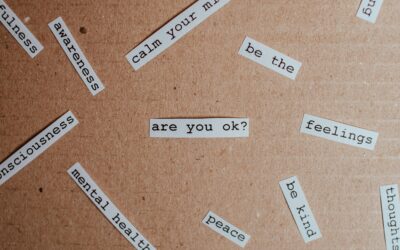If you’re in a toxic relationship, you likely know it already. Maybe you have suspicions that your partner is Narcissistic and feeling like the way they treat you lacks kindness and empathy. If you’re not sure, here’s an article that may help you.
Often people struggle with getting help when they are in a Toxic Relationship because they fear judgement or they don’t want to confront their issues yet.
Toxic Relationships can be growth opportunities that teach us so much about ourselves, our partners, and our needs and wants in relationships. However, it takes effort and sometimes a good therapist to be able to see it.
Here’s my conversation with Ashlee about her work:
Do you judge clients who are staying in toxic relationships? How do you help them heal if they don’t want to leave their partner?
Absolutely not!
My goal is never to push my clients into leaving or staying, so I don’t judge them if they decide to stay. My goal is for my clients to know why they are making the decision to stay or leave a relationship.
So many times, I have had clients who have functioned in their relationships on the basis of trauma responses. They have had some past hurt that influences how they currently think and behave, but they are unaware of this. They can become angry and don’t know why, they can lash out and don’t know why, they can choose to stay and don’t know why, or run from the relationship not knowing why. This is unhelpful in the long term because, without understanding, history can repeat itself.
If a client can look at their situation and make an informed decision to stay, I am happy. From there, we work on how to help them function in the relationship more effectively. This may look like exploring why certain things bother them, how different strategies can be employed to improve their relational dynamic, and challenging any past belief systems that are rooted in trauma, giving them the opportunity to decide if it serves them and if they want to make any changes moving forward.
Now, if, after this process and giving the relationship all they have, they decide to leave, we will work on helping them through that process. Wherever my clients find themselves, whether that is staying or leaving, I will join them there.
Is it normal to miss a partner after breaking up from a toxic relationship? Is this an indication that I made a mistake ending the relationship?
Yes! It is definitely normal to miss a partner after breaking up, especially if this was a long-term partner or spouse. Lives and routines are intertwined when in a relationship, so often there is a felt void when a relationship ends.
We are not robots, and our emotions don’t just turn off or reverse when we make the decision that a relationship no longer serves us.
Also, a relationship may end because of toxicity, but that doesn’t mean everything in the relationship was bad.
We do ourselves a disservice by gaslighting ourselves into thinking that the good times weren’t precious to us or that our care for the person isn’t real and from a genuine place. When we do this, it doesn’t allow us the ability to properly grieve the fullness of the relationship because we judge ourselves for missing someone we now view in a negative light. This can be difficult. It is not easy to fondly remember someone who has hurt you.
Take the time to fully process the breakup and allow space for every experience, healthy or toxic, to be addressed and worked through. Now, missing the person isn’t an indication that ending the relationship was a mistake. Our feelings don’t just turn off like a light switch, and if that is the expectation, it is easy to think the breakup was a mistake.
It is so important to know why you are making the relationship decisions you are making. If you have self-awareness and can objectively say why you are ending the relationship, you can stand firm on that and allow space for the full range of emotions you might feel afterward without second-guessing yourself.
Can a toxic relationship be fixed?
In short, yes. However, relationships require teamwork, and one person can’t play a team sport alone.
Repairing toxic relationships takes work and effort from all parties involved. It is only impossible without full participation and commitment. Now, does that mean that every toxic relationship should or can be repaired? No.
Sometimes, there is a mutual effort, and things don’t work out, and that is ok. But, if there is any chance of making something toxic healthy, everyone involved needs to be willing and committed to do the work.
Why do you like working with people healing from toxic relationships?
I enjoy working with people who are healing from toxic relationships because I love helping people understand themselves by growing in self-awareness and increasing in emotional intelligence. I have found that when this happens, we are more likely to make better and more well-informed relational decisions.
My hope is that after growing and developing in these areas, my clients will be less likely to experience the pain of a toxic relationship in the future. Ultimately, I want others to be well and to feel empowered to navigate future relationships. It is my honor to walk alongside them on that journey.
Click here to schedule a session with one of our therapists.
The Team Behind the Message:
At Beach Cities Psychotherapy, our team of dedicated therapists truly care about your well-being. We are passionate about sharing valuable information to support and guide you on your journey. Whether you’re facing life’s challenges or seeking personal growth, our team is here to ensure you receive the compassionate care and support you deserve. We’re committed to helping you navigate through your concerns and are always here to take care of you every step of the way.
More From Us:
How to Get Unstuck: 6 Pillars That Reboot Your Brain and Reignite Your Life
We all feel stuck at some point in our lives — we live too long to not ever feel stuck. With a human lifespan stretching 70, 80, even 90 years, it’s inevitable that there will be seasons where we lose momentum, direction, or motivation. Whether it’s burnout,...
Helping Teens & Tweens Cope with Divorce | How Therapy Can Help
Divorce impacts the whole family — not just the couple who decides to separate. For teens and tweens especially, the experience can stir up confusion, big feelings, and questions about identity, loyalty, and belonging. Even when the divorce is handled amicably, it can...
🌿 Healing Together: Group EMDR Therapy (G-TEP) for Fire Survivors 🌿
FREE GROUP EMDR THERAPY SESSION FOR DISPLACED FIRE VICTIMS Have you been affected by the recent wildfires? Trauma can have lasting effects, but healing is possible. Join us for a supportive Group EMDR Therapy Session (G-TEP) designed to help fire survivors process...




